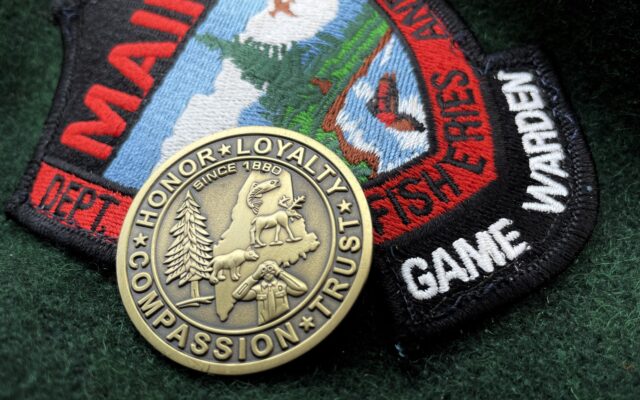
Being honest about hunting mistakes is the best idea
By Chris Sargent
Though largely circumstantial, the evidence was more than enough to pique my interest. It was cause for me to take a deeper look into what I believed to be an intentional hunting violation that hadn’t started out as one.
Specifically, it seemed likely that an honest mistake had been made, but then intentionally was covered up with a cloak of dishonesty and deception.
Barring a very convincing story, or explanation, I was confident that by the end of the day, a summons would be issued, and that I would likely seize a beautiful buck as evidence.
One September day, while checking expanded archery deer registrations at a local tagging
Station as part of my warden duties, a particular tagging slip caught my eye. I was familiar with the gentleman’s name on the slip, because he was a very well-known, skilled and successful deer hunter who I knew to be very passionate about hunting a certain expanded archery area.
As I looked closer at the information, I noticed the time and date stamp of his antlered deer permit indicated it had been purchased online around midnight on a date well after opening day of the expanded archery season. Also, it was interesting that the deer had been registered the very next day.
I asked the young lady at the counter about the tagging slip. She expressed some concerns
regarding the circumstances when a group of hunters came in to register the deer, mainly that the animal had not been field dressed, and that the hunters seemed nervous and were in a hurry to leave.
I took a copy of the tagging slip, and began to look further into the matter.
It wasn’t hard to find what I was looking for. A short time after putting on my Facebook
detective hat, I found a social media post made by one of the hunters that included several
pictures, and a detailed story of their successful trip including arrival and departure timeframes.
The group had put in significant pre-season scouting efforts, were very excited for their multi-
day hunting adventure, and were ready to hit the woods on opening day.
Everything seemed legitimate, but a burning question remained: why would such an accomplished and knowledgeable hunter head out on this sort of trip without a proper permit in hand? Why would he purchase it well after opening day, and at midnight?
I could see no explanation other than the hunter killed the deer, realized after the fact that he did not possess the proper permit, purchased it late that night, then waited a reasonable amount of time to register the deer so as not to arouse any suspicions in order to cover up his mistake.
I truly believed it started as an honest oversight on the hunter’s part, but it was now several days later, and the damage had been done. It was time to hear what he had to say for himself.
I found the hunter at his residence, and asked if he would be willing to tell me about his recent
successful hunt. With a smile, he proudly spun a wonderful yarn, describing the hunt as one of
his most memorable ever. After locking him into a statement, I slowly began questioning him
regarding certain specifics, and inconsistencies in his story, including his midnight online permit
purchase.
For the better part of a half hour, I listened to one of the most blatant strings of lies I’d ever heard. Finally, I chuckled, cut him off and told him exactly what I believed had happened.
Teary-eyed, downtrodden and defeated, he looked solemnly at the ground for a few seconds,
trying to think of a final way out. But realizing he’d been caught, he reluctantly murmured, “Yep.
That’s exactly what happened.â€
A simple oversight on his part had ballooned way out of control. With the truth now finally out in the open, the hunter seemed relieved, and understood the fact that he was receiving a summons, and losing his trophy buck. I gave him his paperwork, then we loaded the antlers and meat into my truck before he shook my hand, apologized and thanked me.
The hunter in this scenario wasn’t a bad person or a hardcore intentional violator. He never set
out to break any laws, but when he realized his mistake, his proper course of action should have
been to hold himself accountable, immediately contact a game warden, and explain what happened.
His dishonest actions after the fact are what earned him a ticket and made him lose his buck. The situation would have played out far differently had he simply called me.
Some of Maine’s hunting and fishing regulations can be challenging to understand at times, and
unintentional violations happen every day. As responsible hunters and anglers, we need to hold ourselves accountable, and set a good example for others.
Guided by their four core values: Honor, Loyalty, Compassion and Trust, Maine game wardens understand that good people sometimes make mistakes. So if you ever find yourself in such a position, keep in mind that honesty is often rewarded, and always the best policy.